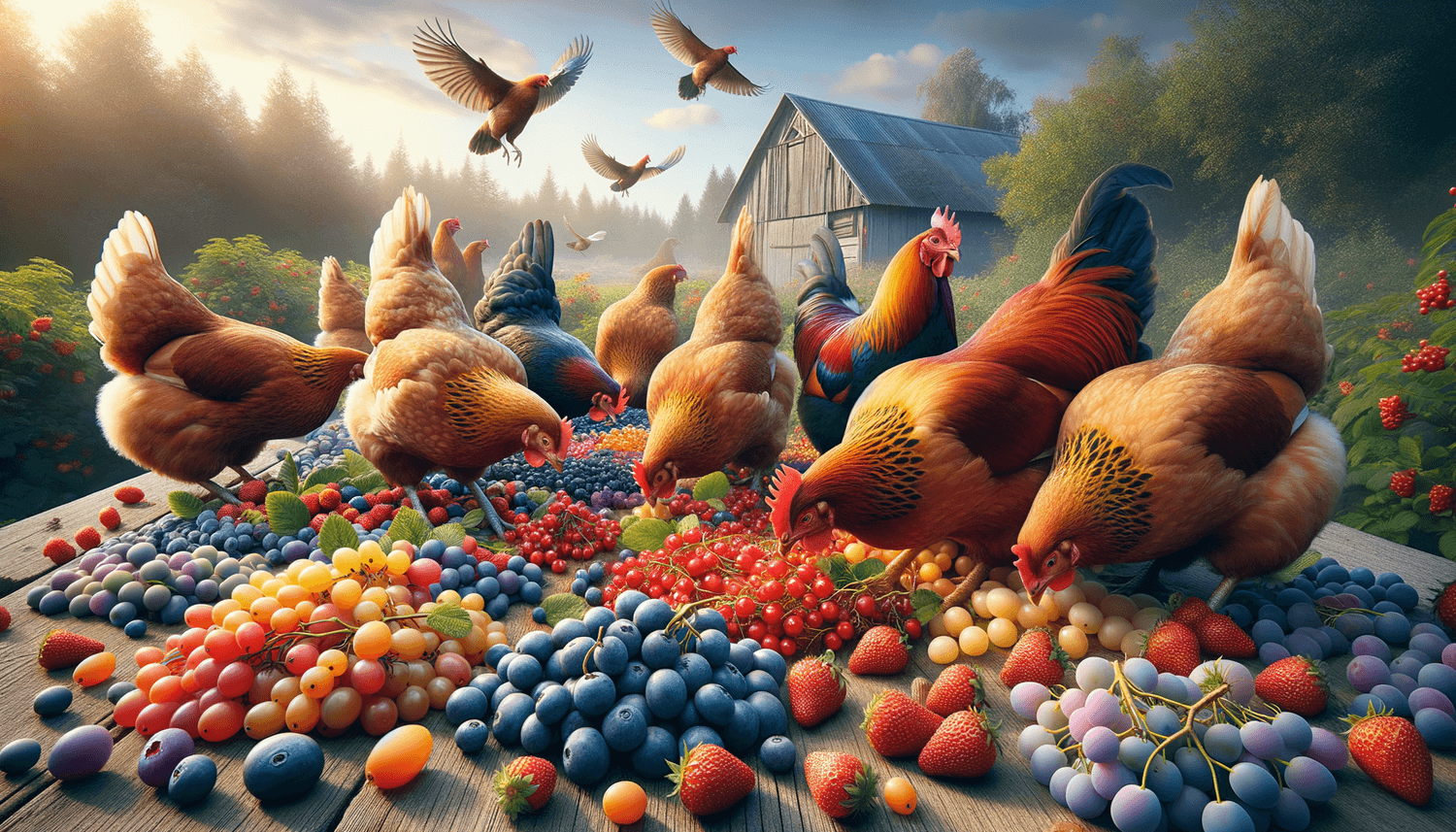Yes, chickens can eat berries. Berries are a safe and nutritious treat for chickens, containing antioxidants, vitamins, and fiber which can be beneficial to the bird’s health. However, they should be fed in moderation alongside a balanced diet.
Quick Summary
- Chickens can eat berries.
- Berries are nutritious, offering antioxidants, vitamins, and fiber.
- Key benefits include enhancing chickens’ health with occasional risks if overfed.
- Feed berries in moderation, ensuring they remain a treat rather than a staple.
Overview of Berries
Berries are small, pulpy fruits that often have vibrant colors and are rich in nutrients. They can vary widely, from strawberries and blueberries to raspberries and blackberries, each with its unique blend of vitamins, minerals, and antioxidants that contribute to overall health.
Benefits and Risks of Berries for Chickens
Chickens benefit from the high vitamin C content and antioxidants present in berries, which can boost their immune system. Additionally, the fiber in berries supports digestive health. However, the natural sugars in berries mean they should be given as occasional treats to prevent obesity and digestive issues.
Feeding Guidelines
Berries should be offered to chickens in small, manageable amounts, preferably chopped up or mashed, to facilitate ease of eating. Introduce berries as a treat, no more than 10% of the chicken’s daily diet, to ensure balanced nutrition.
Alternatives
If you’re looking for alternatives to berries, other safe treats for chickens include vegetables like cucumbers, squash, and leafy greens which offer similar nutritional benefits without the sugar content.
Expert Opinions
Poultry nutritionists and veterinarians often recommend incorporating varied treats into chickens’ diets to provide enrichment and extra nutrition. Studies suggest that diversity in diet, including the occasional fruit like berries, contributes to happier and healthier flocks.
Frequently Asked Questions
Here are some common questions and their answers for readers interested in feeding their chickens berries:
How often can chickens have berries?
Berries should be treated as a treat rather than a staple in their diet. Offering berries once or twice a week is sufficient.
Are there any berries chickens should avoid?
All commonly consumed berries such as strawberries, blueberries, blackberries, and raspberries are safe for chickens. However, always ensure they have not been treated with pesticides and are free from mold.
Can chickens eat berry plants or leaves?
While the fruit is typically safe, some berry plants or leaves can be toxic to chickens. For example, the leaves of tomato plants, which bear a berry-type fruit, are harmful. Always research the specific plant before feeding any part of it besides the fruit to chickens.

















